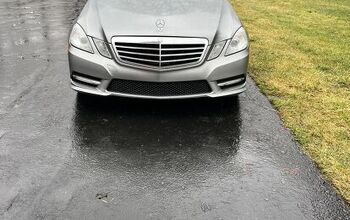How Sleazy Car Dealers Pass Off Frame Damage Cars As Clean

Carfax has become so commonplace that it’s now standard practice for many car buyers to ask for it when shopping for a used car. Its database has grown over the years to the point that it now claims to to have the most comprehensive vehicle history database in North America.
The reports include such valuable information as title brands, accident history, and even service history for some vehicles, but it has some limitations that unscrupulous dealers are using to their advantage. The missing data allows these dealers to represent damaged cars as clean and use the Carfax report to support those claims.
I found out about one such dealer when a friend went to trade his car and was hit with a surprising report of frame damage. He had purchased a Nissan Pathfinder a few years earlier and the selling dealer had supplied a clean Carfax through its website and offered a printout on the test drive. The car was inspected before the sale and everything seemed to be in order, so he bought it and drove it for two years.
He started shopping for a new vehicle and asked one of the dealers to evaluate the Pathfinder for a trade-in value. The dealer came back offering about half of the market value because they had found frame damage on the history report. The dealer brought a printout of the Carfax and Autocheck that showed the Pathfinder had been announced with frame damage at the auction four months before his purchase.
The report was taken back to the original selling dealer of the Pathfinder. The dealer played dumb and pulled out a copy of the original report stating that they had no knowledge of the frame damage. My friend decided to open a case with Carfax. Since it had been so long there was not much that could be done. Carfax explained that its database is comprehensive but relies on other parties to submit much of the information. That can take months or years for certain cars.
The Carfax website only points out that they collect odometer readings from auto auctions, but provides no notes in regards to auction announcements. My friend spoke to a few lawyers that deal with automotive fraud cases, but none of them recommended proceeding with a case since the burden of proof was on the buyer and it would be difficult to track the auction information down after so much time had passed. In the end, my friend disclosed the new found information and reduced the price. He sold the car for a lot less than it should have been worth.
Speaking with a few local, reputable dealers led me to find out there are a few dealers in the area that participated in an unscrupulous practice of misrepresenting cars that were marked with frame damage. These dealers seek out cars that look clean but are announced with frame damage since they go for so much less. They verify that the Carfax is clean and list the cars on their lot to sell quickly. Potential buyers see the clean Carfax and buy the dirty car. Since most people don’t recheck their vehicle history while they own car, the sleazy dealers usually get away with it. The one exception is Uber, who appears to recheck vehicle history using Autocheck on a regular basis and cancels any contracts that come up with a frame damage hit.
Carfax may receive this information months later and update, but the buyer likely won’t notice until they are ready to trade or sell the car. Autocheck does receive information from some of the big auctions and usually reports frame damage announcements on the report. They are usually fairly quick in reporting the information, so it’s a good idea to use both reports. One of the local dealers that was known for sleazy tactics was arrested a few years ago but the others are still in business.
I pulled up the inventory of another one of the dealers and was quickly able to find a vehicle that matched the scam. The dealer offers a free Carfax report for the car which shows a clean history and even offers some sort of engine warranty. The Carfax shows that the vehicle was inspected at auction and its condition was marked as above average. Running the VIN through Autocheck shows the same auction date and odometer but shows an announcement for frame damage. The vehicle is worth much less according to Autocheck, but Carfax is none the wiser.
The Carfax report does show a few additional pieces of information, such as a pending recall, but not much in the way of accidents or damage. Carfax and Autocheck are valuable resources in checking the condition of a car but sleazy dealers find ways around them and information may not be reported at all. It’s vitally important to complete a pre-purchase inspection on any potential used car along with checking Carfax and Autocheck.

More by Bozi Tatarevic
Latest Car Reviews
Read moreLatest Product Reviews
Read moreRecent Comments
- RHD The analyses above are on the nose.It's a hell of a good car, but the mileage is reaching the point where things that should have worn out a long time ago, and didn't, will, such as the alternator, starter, exhaust system, PS pump, and so on. The interiors tend to be the first thing to show wear, other than the tires, of course. The price is too high for a car that probably has less than a hundred thousand miles left in it without major repairs. A complete inspection is warranted, of course, and then a lower offer based on what it needs. Ten grand for any 18-year-old car is a pretty good chunk of change. It would be a very enjoyable, ride, though.
- Fred I would get the Acura RDX, to replace my Honda HR-V. Both it and the CRV seats are uncomfortable on longer trips.
- RHD Now that the negative Nellies have chimed in...A reasonably priced electric car would be a huge hit. There has to be an easy way to plug it in at home, in addition to the obvious relatively trickle charge via an extension cord. Price it under 30K, preferably under 25K, with a 200 mile range and you have a hit on your hands. This would be perfect for a teenager going to high school or a medium-range commuter. Imagine something like a Kia Soul, Ford Ranger, Honda CR-V, Chevy Malibu or even a Civic that costs a small fraction to fuel up compared to gasoline. Imagine not having to pay your wife's Chevron card bill every month (then try to get her off of Starbuck's and mani-pedi habits). One car is not the solution to every case imaginable. But would it be a market success? Abso-friggin-lutely. And TTAC missed today's announcement of the new Mini Aceman, which, unfortunately, will be sold only in China. It's an EV, so it's relevant to this particular article/question.
- Ajla It would. Although if future EVs prove relatively indifferent to prior owner habits that makes me more likely to go used.
- 28-Cars-Later One of the biggest reasons not to purchase an EV that I hear is...that they just all around suck for almost every use case imaginable.





































Comments
Join the conversation
I have found numerous incidents where Carfax was inaccurate. Auto auctions report vehicles that have holes drilled in the frame as frame damaged too. If your pickup has/had a gooseneck hitch, it likely has extra holes which constitute frame damage by the auction and Carfax. I had a car which Carfax showed having been in a moderate collision in Hawaii two months after I purchased it. The car was (and still is) in Minnesota since new, and I certainly didn't take it to Hawaii. When I contacted Carfax about this, they asked me to prove it wasn't in Hawaii on that day! The collision I DID have several years later, doesn't show up, but my fictitious Hawaii crash is still there.
The salesman pulled up the car fax report on my 2013 Volt before I bought it a few weeks ago. It was clean but now after reading this who knows. I know the dealer bought it at auction and it was from Ohio originally. Nothing seems funky about it that would leave me to believe it's been repaired. Personally I could car less about a little fender bender just don't want anything that's been on a frame rack. Especially a Volt with that battery pack running down its spine.